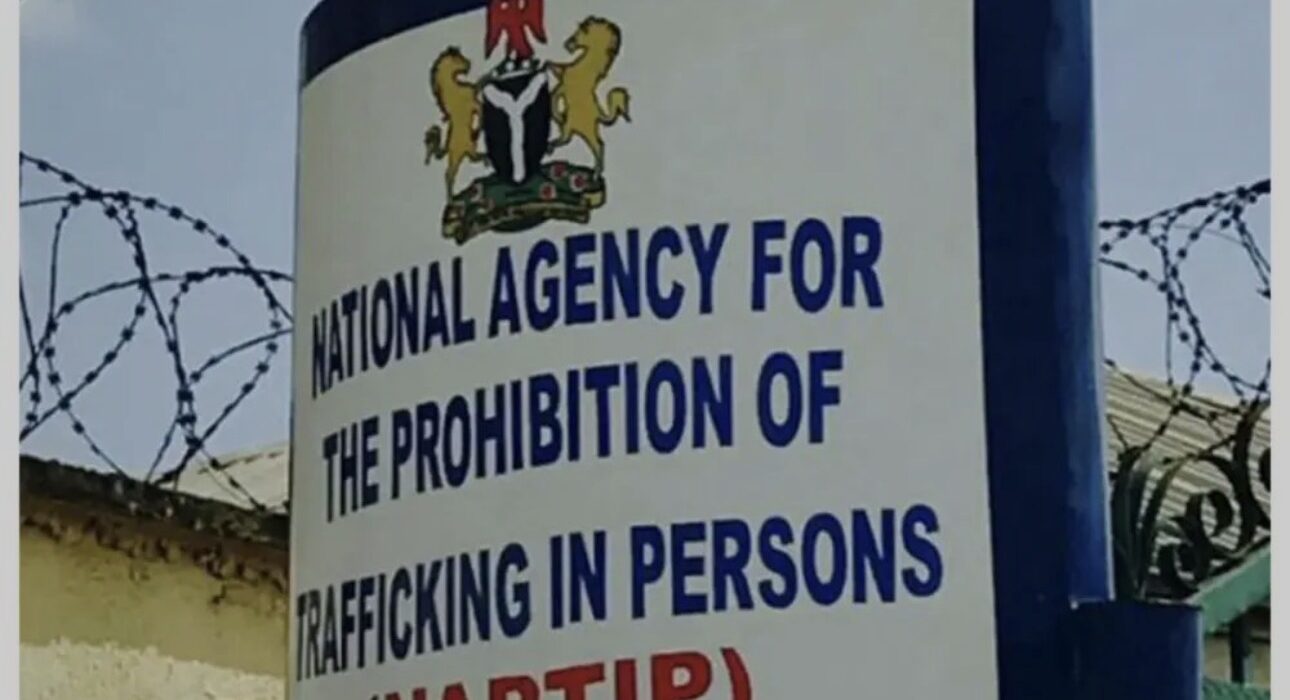NAPTIP Rescues Eight Women, Arrests Two Suspects in Kano Over Cross-Border Trafficking Syndicate

The National Agency for the Prohibition of Trafficking in Persons (NAPTIP) has rescued eight women and arrested two suspects in Kano State during a major operation targeting a cross-border human trafficking syndicate.
The victims, all females aged between 18 and 43, were intercepted at the Malam Aminu Kano International Airport while attempting to travel to Saudi Arabia for alleged labour exploitation.
According to NAPTIP’s Kano Zonal Commander, Abdullahi Babale, the agency acted on intelligence reports that exposed a network of traffickers facilitating the illegal movement of young women out of the country under the guise of securing employment opportunities abroad.
He said the operation was part of a coordinated crackdown on transnational trafficking rings exploiting Nigerian citizens for forced labour and sexual exploitation.
Babale confirmed that the rescued women hail from Kano, Katsina, Bauchi, and Kaduna States.
Investigations revealed that most of them were promised well-paying domestic jobs in Saudi Arabia, only to later discover the deceitful nature of the arrangement. The suspects, identified as members of a regional trafficking cartel, allegedly specialized in arranging one-way tickets and falsified travel documents for their victims.
“The suspects were preparing to facilitate the movement of these victims to Saudi Arabia when our operatives intercepted them.
One of the traffickers has been arrested, while another who fled during the operation is currently being tracked,” Babale said.
He also disclosed that the operation followed an earlier incident in July, when two other women were trafficked from Kano to Burkina Faso for sexual exploitation.
NAPTIP rescued the victims and arrested one female suspect in connection with that case. The victims were brought back to Nigeria by road and are currently undergoing rehabilitation.
The agency stated that the rescued women from the latest operation are receiving counselling, medical care, and temporary shelter in preparation for reintegration with their families.
NAPTIP reaffirmed its commitment to protecting vulnerable Nigerians, particularly young women who are often lured abroad under false pretenses.
Babale urged parents, guardians, and community leaders to remain vigilant and to question suspicious travel offers, especially those involving unverified foreign jobs.
“We are intensifying our awareness campaigns to educate the public on the dangers of human trafficking. People must understand that these traffickers prey on economic hardship and desperation,” he added.
The arrests come as part of NAPTIP’s ongoing collaboration with security agencies and international partners to dismantle trafficking networks operating across West Africa and the Middle East.
The agency has pledged to ensure that the suspects face prosecution to serve as a deterrent to others involved in similar crimes.
Human rights advocates have commended the operation, describing it as a significant step toward curbing the rising cases of cross-border trafficking in northern Nigeria.
They, however, called for stronger border surveillance and stiffer penalties for offenders to address the root causes of the crime.
NAPTIP reiterated its warning to Nigerians to be cautious of employment agents who promise overseas jobs without proper documentation, stressing that many such offers end in exploitation, abuse, or modern-day slavery.







